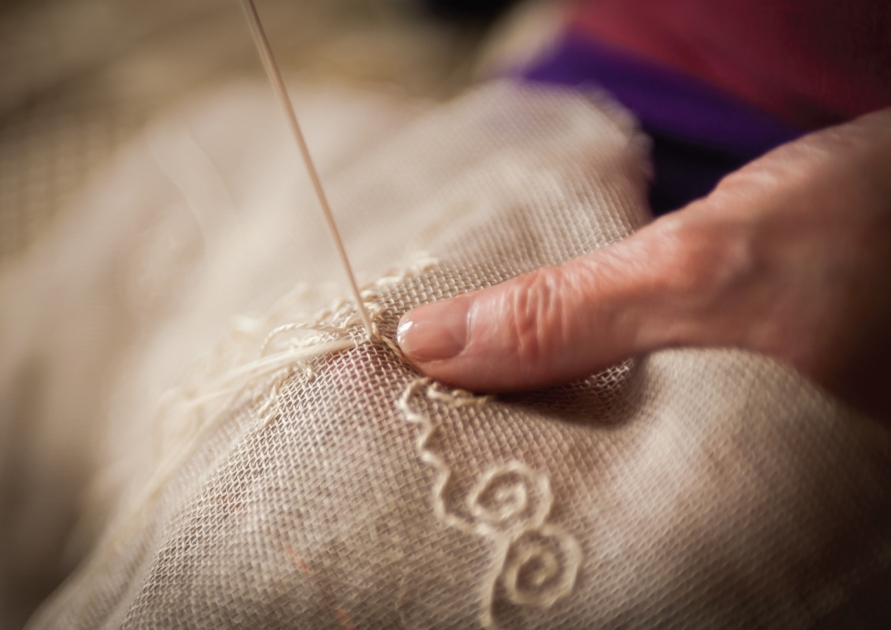
Sharjah’s Irthi Contemporary Crafts Council Continues Drive for Home-Based Artisan Businesses
As part of its highly successful programme to strengthen a creative manufacturing base within Sharjah for both modern and traditional crafts, the Irthi Contemporary Crafts Council’s Bidwa Social Development Programme has opened registration for a new series of vocational courses which will not only teach women new skills but could also in the longer term open doors for them to generate their own income.
The Bidwa programme, an initiative run by the council, aims to both empower female artisans socially and economically and ensure the continuation of the UAE’s traditional craft, will now be delivering courses on embroidery, traditional crafts – Talli (handwoven braids) and Safeefah (palm frond weaving), sewing and dressmaking, weaving, jewellery-making and furniture-making.
The courses, which can be between three and eight months long depending on the craft, cater to all skill levels from beginners to advanced, and will be delivered by industry professionals and artisans with experience in the crafts from the UAE and abroad.
Reem BinKaram, Director of NAMA Women Advancement Establishment (NAMA), the umbrella organisation for Irthi Contemporary Crafts Council, described the courses as an opportunity for women to play a tangible part in preserving Emirati heritage while looking to build their own future.
“In accordance with the vision of Her Highness Sheikha Jawaher Bint Mohammed Al Qasimi, wife of His Highness the Ruler of Sharjah, Chairperson of NAMA Women Advancement Establishment and Founder and Royal Patron of Irthi Contemporary Crafts Council, it is one of the council’s ultimate goals to enable Emirati women who practice traditional crafts to generate a sustainable source of income and achieve professional and social empowerment.”
“Through the Bidwa Social Development Programme, Irthi has been actively reviving the country’s important heritage cottage industries by modernising and elevating the crafts whilst also engaging with younger generations.” BinKaram said.
“Offering them the chance to learn new crafts and professional skills through these vocational training courses is an opportunity to both preserve heritage and pursue new and dynamic careers. This will hopefully be the first of many opportunities to work with other centres, organisations and government entities to upskill both existing artisans and those who are new to crafts as well,” she added.
The courses, which begin on April 22, will be conducted in Arabic at the Bidwa Centre, Dibba Al Hisn, Sharjah. For more information and a registration form, interested parties should call +971 6 594 1267 or e-mail [email protected]

























